基本作用
Stack 会把多个子组件 叠放在一起(Z 轴方向的布局),和 Row / Column 不同的是:
Row/Column是沿 X / Y 轴排列Stack是沿 Z 轴 叠放
以把 Stack 想象成 Photoshop 里的图层系统,后添加的元素会叠在前面的上面。
在 Flutter 的 Stack 中,默认的排列(叠放)顺序就是按照 children 列表里的代码顺序来决定的:
- 前面写的子组件(列表中靠前的)会先绘制,所以它会在下面。
- 后面写的子组件会后绘制,所以它会盖在上面。
Stack的定义
Stack({
Key key,
// 对齐方式,默认是左上角(topStart)
// 这里的对齐的位置是相对 Stack 这个容器内部来说的
this.alignment = AlignmentDirectional.topStart,
// 对齐方向
this.textDirection,
// 定义如何设置无定位子元素尺寸,默认为loose
this.fit = StackFit.loose,
// 对超出 Stack 显示空间的部分如何剪裁
this.clipBehavior = Clip.hardEdge,
// 子元素
List<Widget> children = const <Widget>[],
})
基本语法
class StackPage extends StatelessWidget {
const StackPage({super.key});
@override
Widget build(BuildContext context) {
return Scaffold(
body: Stack(
// 居中对齐
alignment: Alignment.center,
// 子元素层叠放
children: [
// 三个色块
Container(width: 100, height: 100, color: Colors.green),
Container(width: 300, height: 300, color: Colors.amber),
Container(width: 200, height: 200, color: Colors.blue),
],
),
);
}
}
由于绿色色块更靠前,所有先绘制,又由于绿色色块小,会被红色色块盖住,所有不会显示。
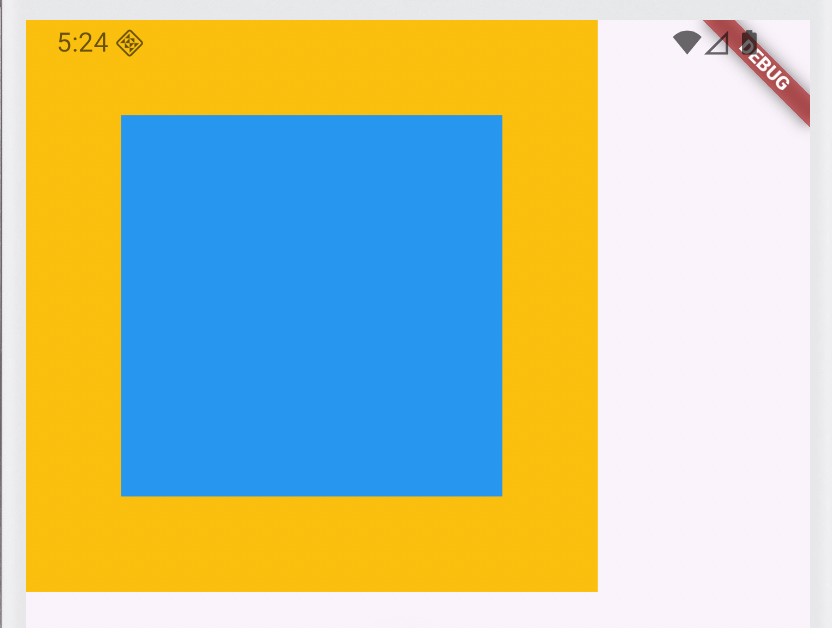
Stack的大小默认由最大子元素(300×300 的那个容器)决定。
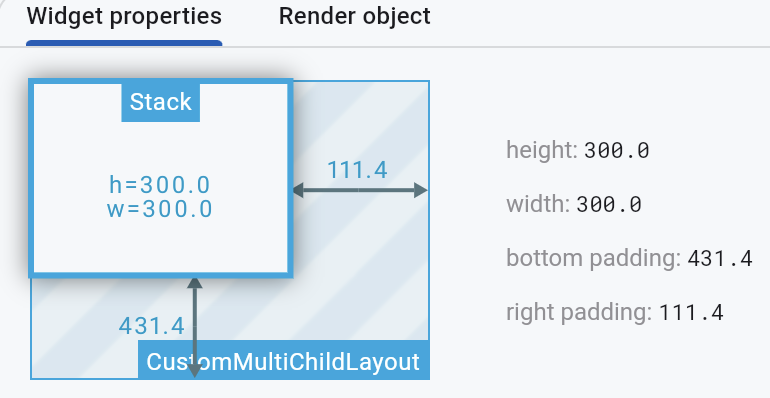
这是因为Stack默认使用的是StackFit.loose,是一个松约束。那么Stack的大小就有最大的子组件决定。
const Stack({
super.key,
this.alignment = AlignmentDirectional.topStart,
this.textDirection,
this.fit = StackFit.loose,
this.clipBehavior = Clip.hardEdge,
super.children,
});
Stack的fit
fit 决定了 Stack 自身在父容器内如何确定大小,影响 非定位子元素 的布局。
| 值 | 含义 | 说明 |
|---|---|---|
StackFit.loose |
松约束 | Stack 尽可能包裹非定位子元素的最大尺寸(默认)。子元素不会被强制拉伸。 |
StackFit.expand |
紧约束 | Stack 尽可能填满父容器,非定位子元素会收到 父约束,容易被拉伸填满。 |
StackFit.passthrough |
透传约束 | Stack 大小 = 父约束大小,但不强制拉伸非定位子元素,约束传递给子元素时不修改。 |
如果我们把上面的那个案例中的fit改成StackFit.expand,那么最终是蓝色会占据整个屏幕
class StackPage extends StatelessWidget {
const StackPage({super.key});
@override
Widget build(BuildContext context) {
return Scaffold(
body: Stack(
// 全屏
fit: StackFit.expand,
// 居中对齐
alignment: Alignment.center,
// 子元素层叠放
children: [
// 三个色块
Container(width: 100, height: 100, color: Colors.green),
Container(width: 300, height: 300, color: Colors.amber),
Container(width: 200, height: 200, color: Colors.blue),
],
),
);
}
}
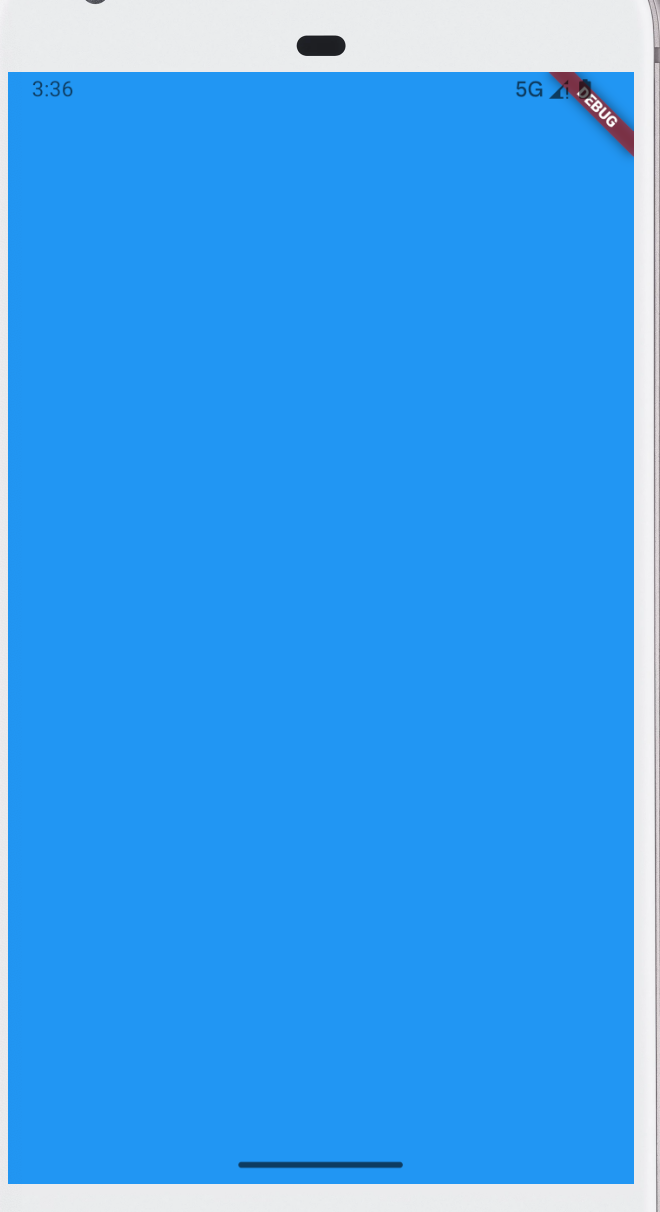
这是因为StackFit.expand设置了一个紧约束,把Stack的大小拉伸到整个屏幕的大小:
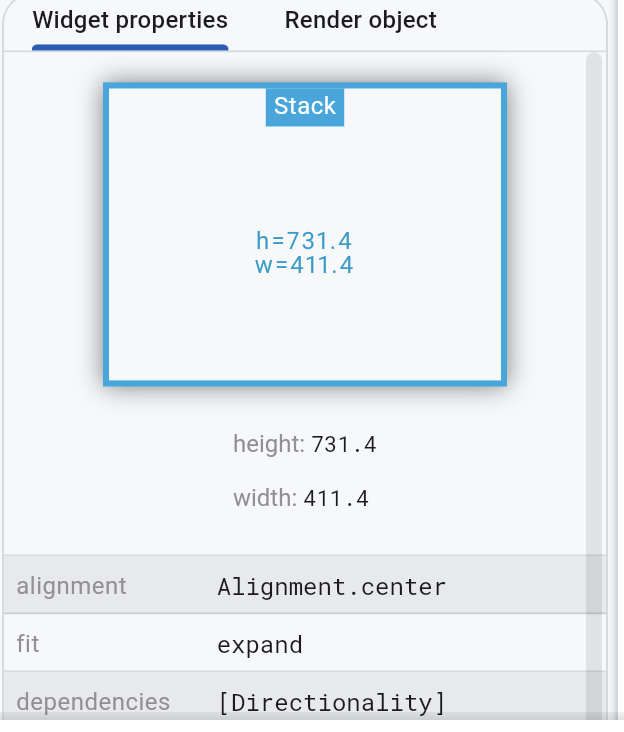
同时由于父组件的紧约束的作用,Container的大小也被拉伸到屏幕大小:
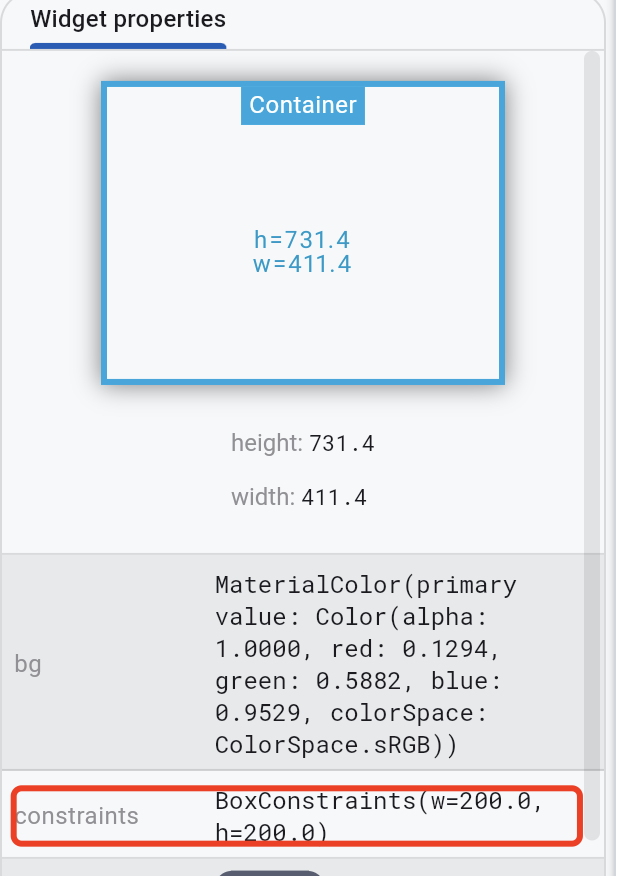
如果需要实现Container不被拉伸,中间还需要放一个组件,来隔绝:
class StackPage extends StatelessWidget {
const StackPage({super.key});
@override
Widget build(BuildContext context) {
return Scaffold(
body: Stack(
// 全屏
fit: StackFit.expand,
// 居中对齐
alignment: Alignment.center,
// 子元素层叠放
children: [
// 三个色块
Align(
alignment: Alignment.center,
child: Container(width: 100, height: 100, color: Colors.green),
),
Align(
alignment: Alignment.center,
child: Container(width: 300, height: 300, color: Colors.amber),
),
Align(
alignment: Alignment.center,
child: Container(width: 200, height: 200, color: Colors.blue),
),
],
),
);
}
}
Align是一个松约束,可以让Container保持自身设计的大小。
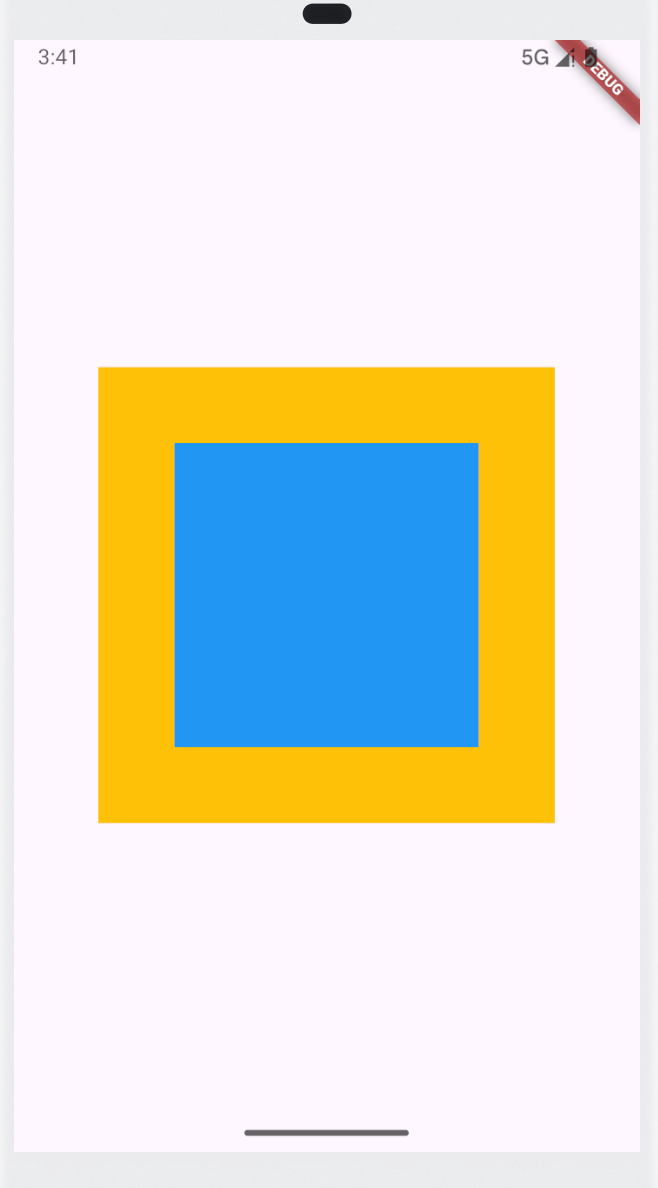
Positioned绝对定位
class StackPage extends StatelessWidget {
const StackPage({super.key});
@override
Widget build(BuildContext context) {
return Scaffold(
body: Stack(
// 居中对齐
alignment: Alignment.center,
// 子元素溢出, none 不裁剪
clipBehavior: Clip.none,
// 子元素层叠放
children: [
// 三个色块
Container(width: 100, height: 100, color: Colors.green),
Container(width: 300, height: 300, color: Colors.amber),
Container(width: 200, height: 200, color: Colors.blue),
// 绝对定位
const Positioned(left: 0, bottom: -50, child: FlutterLogo(size: 100)),
],
),
);
}
}
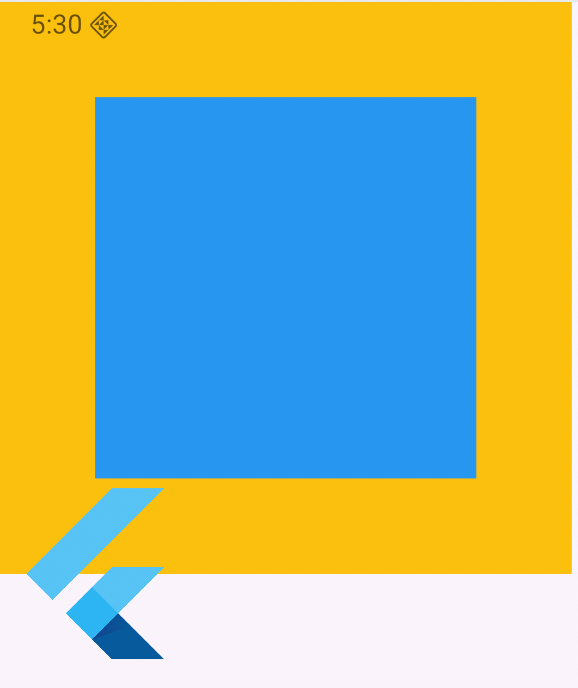
clipBehavior:决定超出 Stack 范围的内容是否裁剪:
Clip.none:不裁剪Clip.hardEdge / Clip.antiAlias:裁剪掉溢出的部分
Positioned 是用来给子组件绝对定位的,可以用 left/right/top/bottom 任意组合控制位置。
const Positioned({
Key key,
this.left, // 上下左右位置
this.top,
this.right,
this.bottom,
this.width, // 宽高
this.height,
@required Widget child,
})

